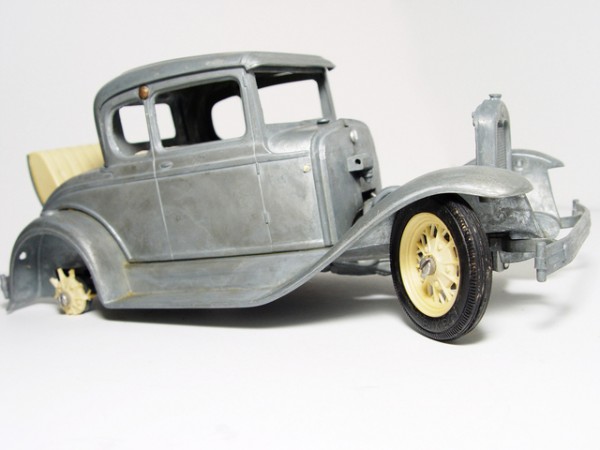
“We injure our spiritual life when we dump the whole thing down before God and say — You do it. That spirit is blind to the real union with God. We must dump ourselves down in the midst of our problems and watch God solve them for us… If we could see the floor of God’s of immediate presence, we would find it strewn with the “toys” of God’s children who have said — This is broken, I can’t play with it anymore, please give me another present. Only one in a thousand sits down in the midst of it all and says — I will watch my Father mend this.” (Oswald Chambers, Not Knowing Where)
As the parent of two kids under the age of six, I’m constantly amazed at the short half-life of many toys. Some toys are increasingly being made to be disposable, much to the chagrin of both environmentalist and parent. In our house, some toys with regularity seem to be sucked into some sort of previously unknown vortex, only to be teleported to another undisclosed location. Some days, the algorithm for its reappearance seems random. Other days, the algorithm seems to be set for the day after someone suffers a meltdown looking for it — whether that someone be child or parent.
But the toys that sadden me the most are those highly favored toys that break. Sometimes they break through overuse and other times they break from misuse. Of course, the child experiences a strong negative emotional response either way.
This is where the story can sometimes play out differently at different times. Do they get mad and throw the toy on the floor? Do they push the toy off to the side and simply go play with another one? Do they ask for help but become upset either when the toy isn’t immediately replaced or made to be brand-new again?
With 100% certainty, I can guarantee my response as a dad will be different if my daughter demands through her pouty voice to fix a toy versus if she, with tears in her eyes, runs to give me a hug as she asks for my help fixing it. There’s no question which approach will most motivate this daddy’s heart towards her desired outcome. It’s not about manipulation, but relationship. When our relationship is the focus and not the “fix”, I’m motivated toward helping with the fix because of our relationship. When the fix is the focus and not the relationship, things generally turn out less to her liking.
How often do we go to God with something broken in our lives, demanding that He fix it? Even if we ask respectfully as his kids, how often do we choose not to stick around while He’s bringing about a resolution? Do we bring things to God in prayer and fail to accept the reality we may have to wait for his answer — often for much longer than we’d like? Even if we stick around and wait, what’s the quality of our waiting? Do we badger God, harass Him or demonstrate impatient attitudes in a way that would drive us crazy if our own children did it to us?
If I’m honest, sometimes I’m the one who needs to be fixed more than my circumstance or my problem. In reality, that’s probably closer to the truth more often than not.
When I think about my own kids, I care much more about their becoming respectful and godly adults than I do about their having a favorite toy repaired. If this is my attitude towards my own children, what makes me think that my Heavenly Father would be any different — that He wouldn’t care more about my being conformed to the image of Christ than the resolution of my present pain or circumstance? It’s not that my situation isn’t important. It’s just that our relationship is paramount, as is my becoming a bit more like Jesus through the process.
So how will we respond today with the broken toys we bring to our Heavenly Father for “fixing”? It’s OK for us to take our broken toys to Him. Let’s just commit that we’ll also take our broken hearts and our broken attitudes to Him, as well.


